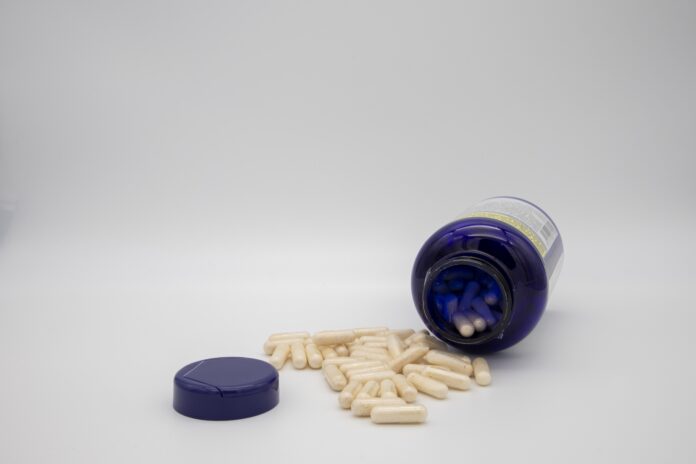Creatine Supplements are considered safe for use. These supplements are generally used to treat the health problems that occur when your body cannot metabolize creatine sufficiently. It is also used for building muscle mass or improving athletic performance. However, excess Creatine Supplements are not good for your health. Overuse of it can lead to certain gastrointestinal conditions.
Overview
Creatine supplements are the nitrogenous organic acids that help supply energy to your body cells and most popular for sports persons. Fish and red meat are its natural source. It is basically used to increase the power, strength and muscle size in athletes. Some scientific evidence proves that creatine might prevent skin aging, enhance cognitive ability, treat muscle diseases, and help people with multiple sclerosis. More evidence is needed to verify the facts. However, excess of it can cause problems.
This article has details about the uses and working of creatine, how it works and how safe it is.
Fast Facts on Creatine
According to research and several studies, athletes use creatine because it increases the body mass and assists them in high-intensity training.
Creatine is also considered good for use in a number of diseases like anxiety, depression, and Parkinson’s disease is also good for muscular dystrophy because it helps build muscles. Several evidence is found that claims creatine is best for memory boost.
It can be used in moderate doses, but long-term use can be harmful.
What is Creatine?
Three amino-acids, L-methionine, L-arginine, and glycine are combined to form creatine. It is found in a very small amount in your blood. Its large amount is stored in your skeletal muscles and a little amount is present in your brain. Your body convert 23% of creatine for use in your liver, kidneys and pancreas, each day. The body parts with high energy demands use it as energy currency. That’s why it is transferred to your skeletal muscles and brain. Different supplements contain different forms of creatine like creatine nitrate and creatine mono-hydrate.
However, it is the fact that no food and health department has approved creatine supplements for use. Because many health risks are associated with the use of these supplements.
Sources of Creatine
According to studies, a healthy person needs 2-4 grams of creatine a day. Half of this amount can be synthesized by your body where the rest can be taken from food. Different types of red meat and fish such as beef and salmon respective.y can be used as rich reservoirs of creatine. Your body needs creatine to supply energy to the body parts who need it for the proper functioning. Athletes generally use supplements to help them to train harder and increase energy production. Some studies showed that athletes who train intensely, needed around 10-12 grams of creatine to maintain their stores. Sometimes, people are caught by some health conditions when they cannot synthesize enough creatine. They have to take 15-25 g of creatine supplements a day to avoid their health issues.
Uses of Creatine
Creatine supplements are the most popular among the sports men who are players of baseball, football, wrestling, hockey and lacrosse. This supplement is also used in large amounts in sports nutrition such as sports drinks. Other uses of creatine supplements need more research evidence. Some of its uses are jotted below:
Improvement in Athletic Performance
A little scientific evidence confirmed the effectiveness of creatine supplements for high-intensity training. Other studies also suggested that creatine allows your body to produce more energy. Most athletes believe in these tides and use creatine supplements to work harder and achieve more.
In addition, in some kinds of exercise participants were observed using creatine supplements to engage their performance.
According to a 2001 study, creatine can improve your performance when you are performing extremely powerful physical activities. The researchers also concluded that creatine can:
- Improve strength, neurological performance, cognitive ability, power, fat-free mass and daily living performance.
- Increase the endurance performance in aerobic workouts.
- Boost the effects of high-training resistance on body mass and strength.
- Improve the quality of high-intensity intermittent speed training.
Although it benefits people who participate in anaerobic exercises, it doesn’t work for those who perform aerobic exercise. Similarly it appears to be useful for short-duration, high-intensity exercises but not effective for other types of workouts. However, some studies showed that creatine supplements do not enhance performance in female athletes.
Increase Body Mass
Creatine supplements help increase your body mass. However few studies have proved it wrong. According to those studies, creatine doesn’t play any role in increasing the body mass. According to researchers, creatine itself doesn’t affect your body mass, it just holds water in your muscles, leading to an increase in their size. Thus leading to increase in the body mass.
According to a 2005 review article, water retention during supplement causes pain in body weight. Working harder during a workout also can be a cause of muscle mass building.
Repair Damage after Injury
Healthcare providers agree to the idea that creatine supplements can help prevent muscle injury and speed up the recovery process when an athlete experiences an injury or physical trauma. In addition, after an intense workout at a training session, creatine may help reduce muscle cramping because it is rich in antioxidant effects. It also helps in rehabilitation for injuries to muscles and brain.
Deficiency Syndrome and Creatine Supplements
A range of your body functions need creatine for their proper functioning. This natural substance varies in amount in different individuals depending on their weight and health status. Creatine usability also depends on the type of muscle fibers and amount of muscle mass you have. Creatine deficiency can cause the following health issues:
- Diabetes.
- Multiple sclerosis.
- Parkinson’s disease.
- Chronic obstructive pulmonary disease.
- Muscle atrophy.
- Congestive heart failure.
- Osteoarthritis.
- Depression.
- Fibromyalgia.
There is not enough evidence to prove the effectiveness of creatine in treating these conditions built people stole used to relieve the symptoms of such conditions. Some supplements help to increase the production of creatine in the brain. The increased amount of creatine helps relieve the symptoms of autism, seizures and movement disorders. Some pediatricians suggested that giving creature supplements to the children up to 7 years old can help improve their academic performance, improve their language and attention. But there is no scientific evidence that it works equally for everyone.
In addition, creatine is produced in your body naturally but it is not a natural substance. So, when you plan to use creatine supplements, talk to your provider first to save yourself from its side effects.
Muscle Dystrophy and Creatine Supplements
People who are struggling with muscle atrophy are recommended to use creatine supplements to improve their muscle strength. Studies found that people having muscular dystrophy used creatine supplements and experienced an increase in muscle strength more than those who did not take the supplements.
In Addition, short-term use of creatine can help treat muscle-dystrophy and improves muscle strength. Its use also reduces fatigue in those who have muscular weakness.
Effects of Creatine on your Cognitive Ability
Researchers provided evidence that proved positive impacts on your cognitive ability. The research confirms that creatine can boost mental performance. It also increases the working memory in children. People who take intelligence tests and perform special tasks under pressure can use it to drive their performance. According to studies, creatine supplements are useful for aiding cognition in elderly people.
Effects of Creatine on Parkinson’s Disease
A study on mice in 2010 has found that creatine can prevent the loss of cells that are typically affected by their condition. Another study helps to evaluate the effects of creatine on the treatment of Parkinson’s disease. Researchers concluded that creatine with a combination of Coenzyme Q10 can help treat neurodegenerative disorders like Huntington’s disease and Parkinson’s disease.
But according to another research, people having peoolkehavingtreatmnent with creatine monohydrate for 3 years did not show any improvement. Similarly another scientific journal has published a review article that claimed that there was no evidence that proves the effectiveness of creatine on Parkinsin’s disease.
Depression
Researchers involved around 50 individuals and made them take 10 grams creatine every day as an antidepressant, for 30 to 40 days consecutively. The results showed that the symptoms of dep[ression get improved as compared to those who were given a placebo. A 2021 research suggested that creatine supplement is a promising treatment option for pregnant females living with depression. However, further research is needed.
Safety Concerns about Creatine Supplements
Their use is safe for some extent. Specific dosage is recommended for getting benefits from its use. In high doses,it can affect some parts of the body negative;y. Some studies support the idea that its high dosage or excessive consumption can lead to health problems in your heart, liver and kidneys. However, not enough evidence is found in this regard.
More effects of creatine on human body include:
Muscle cramping.
Stomach pain.
Diarrhea.
Nausea.
However, some healthcare providers advised kidney patients not to use creatine, as it can cause certain kidney conditions. Similarly, people with diabetes are also prohibited from using creatine as it impacts your blood sugar levels negatively.
Other studies showed that creatine supplements are not safe for use for breastfeeding and pregnant women. So they are directed to avoid rhythm.
Researchers also suggest that creatine causes more water retention in muscles and body cells leading to gain in weight. It can cause negative impact on athletes who have aimed at particular weight management. Excessive weight gain can affect physical performance of athletes.
However, a 2023 study claimed that creatine supplements are safe to use if taken at the cruises recommended by the professional healthcare providers. Its use can help enhance your performance if you require repetitive sprint bounts or maximal effort.
In addition., the food and drug authority of the country labeled creatine supplements as ethical, safe and effective. Their researchers proposed that this is the effective way for the athletes to gain a higher amount of energy without increasing intake of protein and fat. After that, in 2024 they updated their statement by saying that creatine supplements can be considered good if taken as recommended dosage for short-duration.
Thus, apparently creatine seems to safe for use
Effects of High Doses of Creatine
Though, more evidence is required to prove the high doses of creatine can affect your body functions. However, studies suggested that creature can:
Causes high blood pressure in those with hypertension.
Lower blood pressure in those living with hypoglycemia or diabetes.
Researchers also advised to be careful while using creatine, if you have:
Bipolar disorder.
Migraines.
Gastrointestinal disorders.
Deep vein thrombosis.
Low blood pressure when standing up.
Kidney stones.
Irregular heart beats.
Electrolyte imbalances or disorders.
Interaction of Creatine Supplements
Some health concerns associated with creatine usage include the mixing of creatine with ephedra and caffeine in energy drinks. This type of energy drink can cause adverse effects on health such as stroke. Caffeine disturbs water level in the human body and taking a mixture of diuretics and creatinine can lead to dehydration.
In addition, use of creatine in a combination with any drug that affects the kidneys is prohibited as this mixture can cause gout and increased risk of kidney failure.
Conclusion
Creatine is a popular sports supplement. A number of people who are interested in gaining muscle strength and athletes used to take creatine supplements on a regular basis. Sportys individuals spend a huge amount on purchasing these supplements because they produce a burst of energy which is the essential requirement for their sports.
In addition, the olympic games committee and nNational Institute of Sorts have allowed the players and sportsmen to use creatine supplements to enhance their professional performance. In the past some school boards were also allowed to raise funds to provide creatine to their students so that they may learn more quickly as creatine boosts memory and cognitive ability. But it is not allowed now. Because creatine has not been proved as beneficial for physical and mental health as it was considered. It is also not useful for all kinds of stories. Studies show that creatine supplements negatively affect people who already have insufficient production of creatine in their bodies. High Performing athletes also don’t need this supplement.
However, research suggests that it is still helpful in treating and managing some symptoms of some severe health conditions. But their long-term use is not recommended at any cost.
Like all other supplements, it is advised to take it in moderate doses. Talk to your healthcare provider so that they may suggest the effective dose for you,if needed. Remember, taking creatine from natural resources like food and diet can help reduce the side effects and interactions. Many health institutes recommend that taking a balanced diet and following a healthy lifestyle can help you avoid taking supplements.







